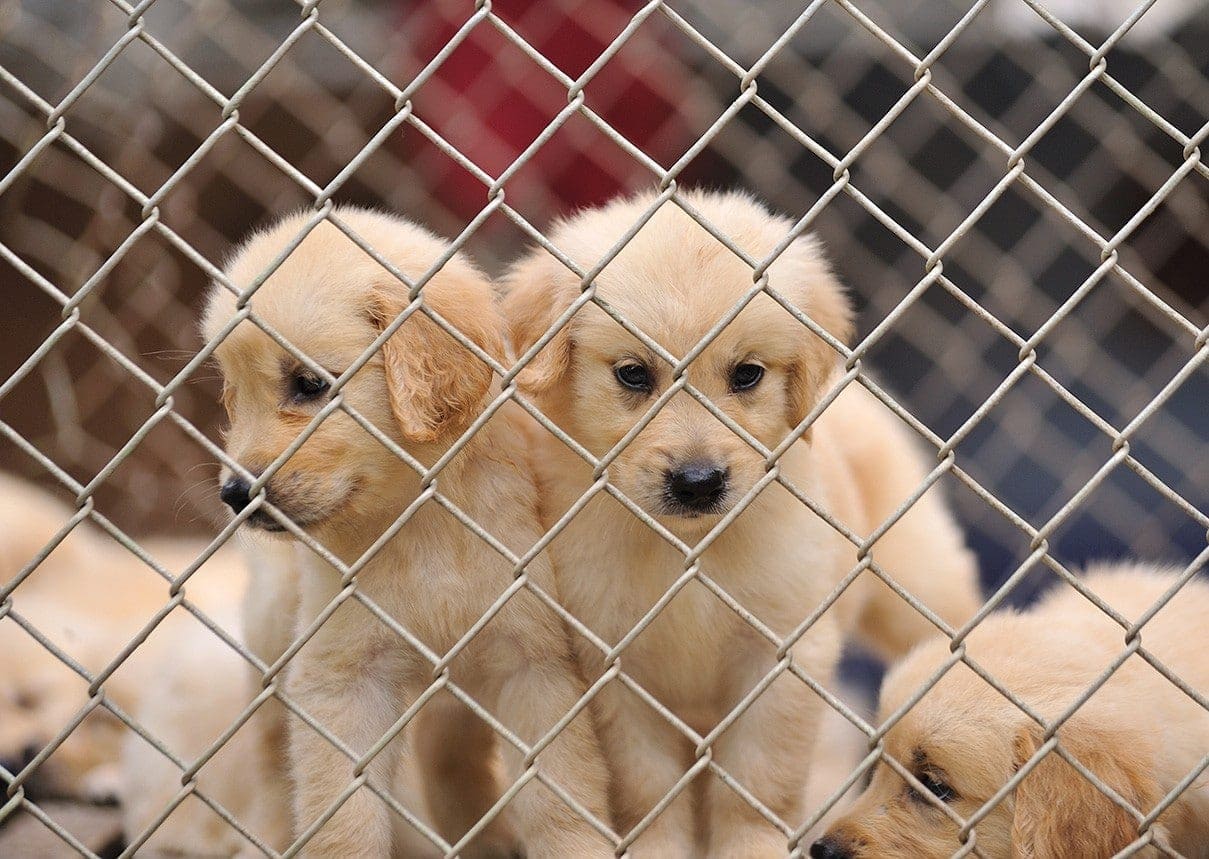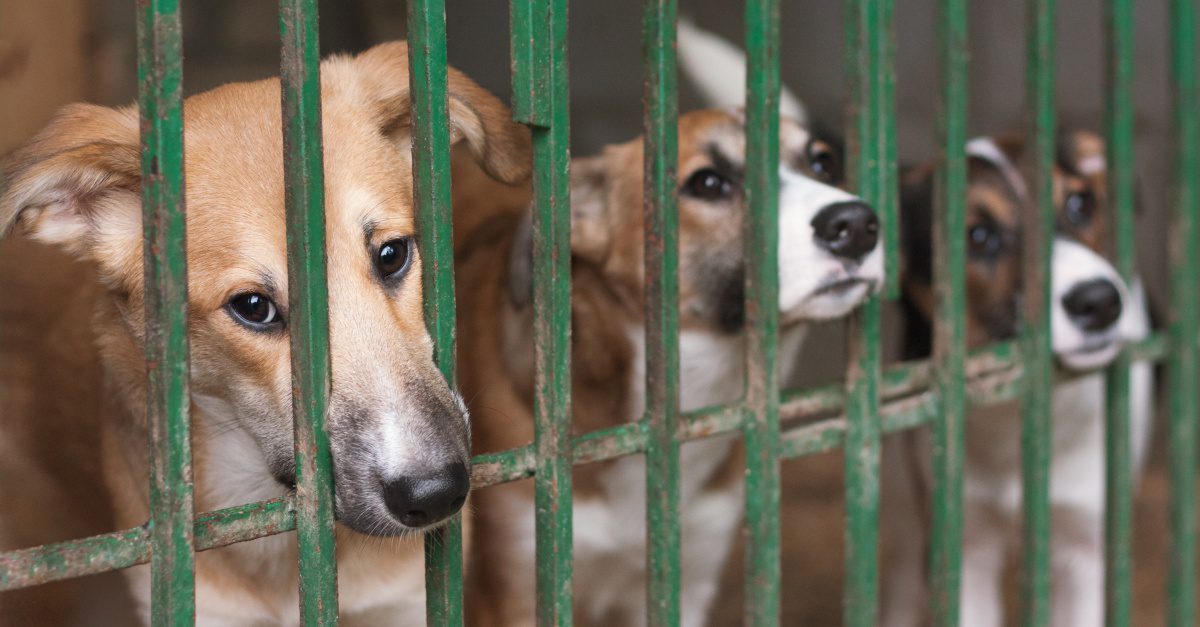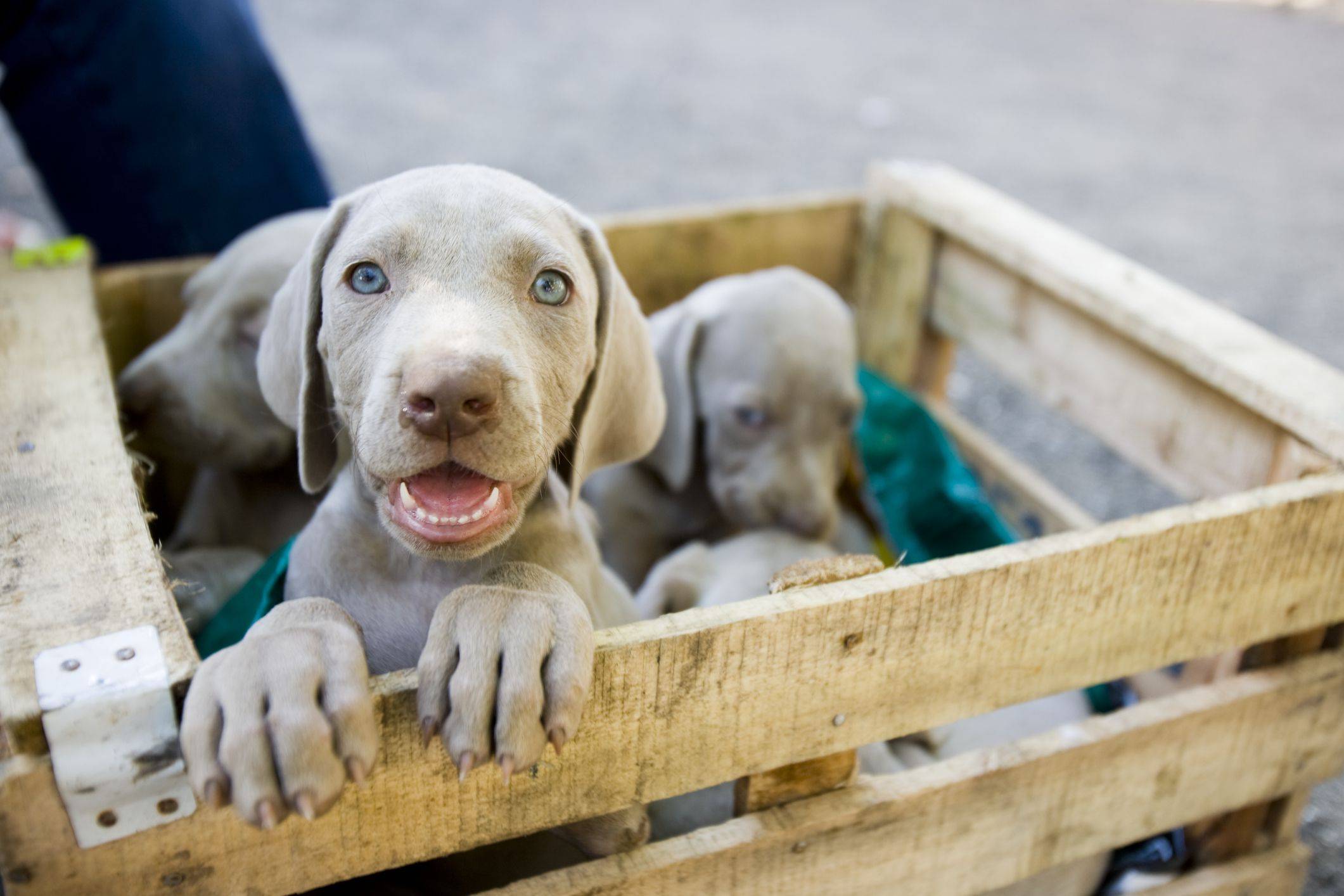In the world of pet ownership, it is crucial to be aware of the presence of bad dog breeders. These individuals can pose serious risks to both the well-being of animals and the satisfaction of their owners. By understanding the warning signs and taking necessary precautions, we can ensure a safer and more ethical environment for our beloved pets.
Key Takeaways:
-
1. Research and choose a reputable breeder: It is crucial to thoroughly research and select a responsible dog breeder who prioritizes the health and well-being of their dogs.
2. Avoid puppy mills: Stay away from breeders who operate puppy mills, which are large-scale commercial facilities that prioritize profit over the welfare of the animals.
3. Insist on seeing the breeding environment: Always insist on visiting the breeder's facility in person to ensure that it is clean, safe, and suitable for raising puppies.
4. Ask for health clearances: Reputable breeders will provide health clearances for both the parents and puppies, ensuring that they are free from genetic disorders or hereditary diseases.
5. Consider adoption: Instead of buying from a breeder, consider adopting a dog from a shelter or rescue organization. There are many loving dogs in need of homes, and adoption helps combat unethical breeding practices.
Understanding the Warning Signs of Untrustworthy Dog Breeders
When looking to bring a new furry friend into your home, it's crucial to be aware of the warning signs that may indicate an untrustworthy dog breeder. These breeders prioritize profit over the well-being of their dogs, leading to potential health and behavioral issues for the puppies they sell. One red flag to watch out for is if the breeder refuses or hesitates to provide documentation about the puppy's lineage and health records. A reputable breeder will gladly share this information, ensuring transparency and accountability.
Another sign of an unreliable breeder is if they are unwilling to let you visit their facility or meet the puppy's parents. Responsible breeders take pride in their breeding practices and are eager for potential owners to see where their puppies come from. Meeting the parents can also give you insight into the temperament and characteristics your new puppy may inherit.
Warning Signs of Untrustworthy Dog Breeders:
- Refusal or hesitation to provide documentation about lineage and health records
- Unwillingness to allow visits to their facility or meet the puppy's parents
- Poor living conditions for dogs at the breeding facility
- Lack of knowledge or interest in discussing breed-specific health concerns
- Inability or reluctance to answer questions about socialization and training practices
The Impact on Dogs' Well-being:
Dogs bred by untrustworthy breeders often suffer from various health issues due to irresponsible breeding practices. These breeders may not conduct necessary health tests on parent dogs, leading to genetic disorders being passed down through generations. Additionally, improper care and living conditions at breeding facilities can contribute to physical and behavioral problems in puppies.
By purchasing a puppy from an untrustworthy breeder, you may unknowingly support these unethical practices and contribute to the cycle of poor breeding. It's important to be cautious and choose a responsible breeder who prioritizes the health and well-being of their dogs.
The Importance of Being Cautious When Choosing a Dog Breeder
Choosing a dog breeder is a decision that should not be taken lightly. The breeder you select will have a significant impact on the health and well-being of your future pet. It is crucial to thoroughly research and evaluate potential breeders to ensure that they are reputable and ethical.
One important factor to consider when choosing a dog breeder is their commitment to responsible breeding practices. A good breeder will prioritize the health and temperament of their dogs over profit. They will conduct thorough health screenings and genetic testing to minimize the risk of hereditary diseases in their puppies. Additionally, they will provide proper socialization and care for their dogs, ensuring that they are raised in a loving environment.
To find a trustworthy breeder, it is recommended to seek recommendations from trusted sources such as veterinarians or local breed clubs. You can also attend dog shows or events where reputable breeders often showcase their dogs. By being cautious and diligent in your search, you can find a responsible breeder who will provide you with a healthy and well-adjusted puppy.
The Negative Impact of Bad Dog Breeders on Dogs' Well-being
Bad dog breeders can have detrimental effects on the well-being of dogs. These breeders prioritize profit over the welfare of their animals, leading to various issues for the puppies they produce.
Poor Health Conditions:
Dogs bred by irresponsible breeders are more likely to suffer from health problems due to inadequate care and breeding practices. They may not receive proper veterinary care or vaccinations, increasing their susceptibility to diseases. Additionally, these breeders often fail to conduct necessary health screenings, resulting in puppies inheriting genetic disorders or predispositions to certain conditions.
Lack of Socialization:
Proper socialization is crucial for puppies to develop into well-adjusted adult dogs. Bad breeders often neglect this aspect, resulting in puppies that are fearful, anxious, or aggressive. These dogs may struggle with behavior issues and have difficulty adapting to new environments or interacting with other animals and people.
Unethical Breeding Practices:
Irresponsible breeders may engage in unethical practices such as overbreeding, inbreeding, or selling puppies at an early age. Overbreeding can lead to health problems for both the mother dog and her offspring, while inbreeding increases the risk of genetic disorders. Selling puppies too early deprives them of crucial bonding time with their mother and littermates, impacting their emotional development.
In conclusion, bad dog breeders can have severe negative consequences on the well-being of dogs. It is essential to avoid supporting these breeders and instead choose responsible breeders who prioritize the health and happiness of their animals.
Signs to Look Out for in Unreliable and Dishonest Dog Breeders
1. Lack of Transparency
One of the first signs that a dog breeder may be unreliable or dishonest is a lack of transparency. They may be hesitant to provide detailed information about the breeding process, the health history of the puppies, or the conditions in which the dogs are kept. A reputable breeder will be open and honest about these aspects, as they prioritize the well-being of their animals.
2. Poor Health Conditions
If you visit a breeder's facility and notice unsanitary conditions, overcrowding, or sickly-looking dogs, it is a clear indication that they are not practicing responsible breeding. Good breeders prioritize the health and welfare of their dogs by providing clean living environments and regular veterinary care.
3. Lack of Proper Documentation
A reliable breeder will have proper documentation for their dogs, including health records, registration papers, and genetic testing results if applicable. If a breeder cannot provide these documents or gives vague excuses for their absence, it raises concerns about their credibility.
How Purchasing from a Bad Breeder Can Lead to Health Issues for Dogs
Purchasing a dog from an unreliable or dishonest breeder can have serious consequences for the animal's health. Here are some ways it can lead to health issues:
1. Genetic Disorders
Dishonest breeders often prioritize profit over the well-being of their dogs, leading to irresponsible breeding practices. This can result in puppies being born with genetic disorders or predispositions to certain health conditions that could have been avoided through proper breeding practices.
2. Lack of Vaccinations and Medical Care
Bad breeders may neglect to provide necessary vaccinations and medical care for their puppies. This puts the dogs at risk of contracting preventable diseases and can lead to long-term health issues.
3. Poor Socialization and Behavioral Problems
Dogs that are bred in unhealthy or neglectful environments may not receive proper socialization during their critical developmental stages. This can result in behavioral problems such as fearfulness, aggression, or anxiety, which can impact the dog's overall well-being.
Responsible Practices Followed by Good Dog Breeders
Good dog breeders prioritize the health and welfare of their animals. Here are some responsible practices they follow:
1. Genetic Testing
Reputable breeders conduct genetic testing on their breeding dogs to identify any potential hereditary health issues. This helps them make informed decisions about which dogs to breed, reducing the risk of passing on genetic disorders to future generations.
2. Proper Socialization
A good breeder ensures that their puppies are exposed to various stimuli from an early age, including different people, animals, and environments. This helps the puppies develop into well-adjusted dogs with good temperaments.
3. Health Screening
Responsible breeders regularly screen their breeding dogs for common health issues relevant to the breed. They also provide appropriate vaccinations and veterinary care for both adult dogs and puppies.
Researching and Finding a Trustworthy Dog Breeder: Tips and Tricks
Finding a trustworthy dog breeder requires careful research and consideration. Here are some tips and tricks to help you in your search:
1. Seek Recommendations
Ask friends, family, or local veterinarians for recommendations on reputable breeders. Personal experiences and word-of-mouth can provide valuable insights into the breeder's reputation and practices.
2. Visit Breeder Websites
Check out the websites of potential breeders to gather information about their breeding program, health testing protocols, and testimonials from previous buyers. A well-maintained and informative website is often indicative of a responsible breeder.
3. Interview the Breeder
Contact the breeder directly and ask them questions about their breeding practices, health guarantees, and how they socialize their puppies. A trustworthy breeder will be happy to answer your inquiries and provide you with any necessary information.
The Crucial Role of Visiting the Breeding Facility and Meeting the Puppy's Parents
Visiting the breeding facility and meeting the puppy's parents is an essential step in ensuring that you are dealing with a reputable breeder:
1. Assessing Living Conditions
When you visit the breeding facility, pay attention to cleanliness, space availability, and overall living conditions for both adult dogs and puppies. A responsible breeder will maintain a clean environment that promotes good health.
2. Evaluating Temperament
Meeting the puppy's parents allows you to assess their temperament firsthand. Good breeders select dogs with desirable temperaments for breeding, resulting in puppies with better chances of having good temperaments as well.
3. Building Trust with the Breeder
A face-to-face meeting provides an opportunity to establish trust with the breeder. You can ask more specific questions about the puppy's lineage, health history, and receive guidance on caring for your new pet.
Considering Adoption: An Alternative to Buying from Breeders?
Adoption can be a wonderful alternative to buying from breeders, offering several benefits:
1. Saving a Life
By adopting a dog, you are giving a second chance to an animal in need. Many dogs in shelters and rescue organizations are looking for loving homes and have been abandoned or surrendered through no fault of their own.
2. Variety of Breeds and Mixes
Contrary to popular belief, shelters and rescue organizations often have a wide variety of breeds and mixed-breed dogs available for adoption. You can find the perfect companion regardless of your preferred breed.
3. Supporting Ethical Practices
Choosing adoption over purchasing from breeders helps reduce the demand for puppy mills and irresponsible breeding practices. By supporting ethical practices, you contribute to the welfare of animals as a whole.
| Beware of Bad Dog Breeders | |
|---|---|
| Key Takeaways: |
|
|
Remember, responsible dog ownership starts with supporting ethical breeders. By being aware of the warning signs and taking necessary precautions, you can ensure that you bring home a healthy and happy companion. Don't let bad breeders deceive you - choose wisely, adopt responsibly! |
|
What are 2 red flags that you might be dealing with a puppy mill breeder?
Be cautious of these warning signs: Breeders who do not inquire much about potential buyers. Lack of guarantees - responsible breeders promise to take back the pet at any point in its life, regardless of the reason.
How do you know if a breeder is a puppy mill?
Purchasing a puppy does not require any paperwork or contracts, and there is no minimum age requirement. The puppies are not provided with any veterinary records or exams, and the vaccines are administered by the puppy mills themselves rather than by a veterinarian.
What should you not say to a breeder?
What are some things you should avoid saying when contacting a breeder? It's important not to demand a puppy immediately or on a specific date, as breeding is not an exact science. Additionally, it's not recommended to specify a particular color or markings, such as requesting a black puppy.
What makes someone a backyard breeder?
Backyard breeding refers to the irresponsible breeding of animals in inadequate conditions with insufficient care. It is often done by individuals who have little experience or knowledge. When this type of irresponsible breeding is done on a large scale, it is referred to as puppy or kitten farming.
What do breeders do with defective puppies?
The specific actions taken by a breeder in the event of a health issue with your puppy will differ based on the terms of the contract. Some breeders may provide a refund, while others may offer a replacement puppy. Certain guarantees may also cover the replacement of puppies that have passed away for any reason.
What is an example of bad dog breeding?
Breeding certain dog breeds with short snouts, like Bulldogs or Pugs, can cause problems with breathing and respiratory issues. Similarly, breeding dogs with short legs, like Dachshunds or Corgis, can lead to spinal issues and back pain.

















